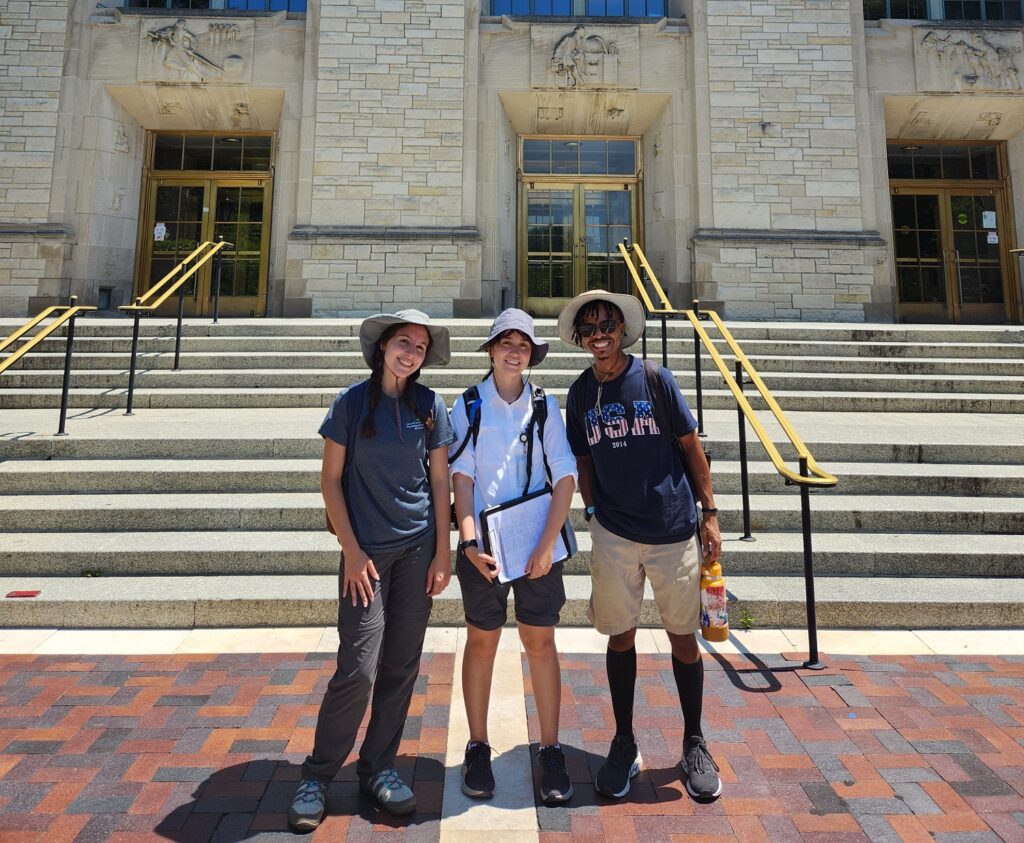
Meet Our Grad Student Scholars is a series from Illinois-Indiana Sea Grant (IISG) celebrating the students and research funded by our scholars program. To learn more about our faculty and graduate student funding opportunities, visit Fellowships & Scholarships.
Brian Lovejoy is a 3rd-year Ph.D. student in the Plant Biology and Conservation program at Northwestern University. He is studying urban ecology and wants to understand if there can be a balance between modern urban development and ecological integrity. He is part of an ongoing project to study alternatives to the traditional turf-grass lawn. The work funded by IISG involves interviewing homeowners to understand how they perceive their lawn care practices and how they relate these practices to the urban ecological issue of flooding.
My name is Brian Lovejoy. I’d like to share some free, yet unsolicited advice: If you are doing or planning to do research with a social component, even if that social component seems innocuous, start looking into the process of gaining your university’s Institutional Review Board (IRB) approval.
On September 28, 2023, I conducted my very first interview with a lovely couple living in Evanston, Illinois who were kind enough to speak with me about their lawn care practices. It turns out that understanding the nuances of social behavior in how they influence urban ecological issues requires actually talking to people. This first interview was so exciting for me because I had been planning my questions and prompts for about seven months.
My plan at the beginning of the summer was to bring my research interns into the exciting work of integrating ethnographic interviewing with urban greenspace research, but it did not come to fruition. Whenever a scientific method includes human research, it is important that the people acting as subjects are protected.

My summer interns expected to help me conduct interviews, but due to my underestimation of how long the IRB process would take, we had to change gears and find alternate summer projects for them. (They made the very best of this situation and each had incredible research projects!)
The administrative body responsible for ensuring that your research is safe for your research subjects is the IRB. The IRB was established in 1974 and its initial purpose was to review biomedical and behavioral research involving human subjects. The establishment of the IRB was a very important development for the time because before this there wasn’t any major infrastructure associated with human research that specifically protected human subjects from varying degrees of harm. Between medical and psychological research, it can be easy to imagine how important the safety and security of human subjects might be (check out the Stanford prison experiment and the Milgram experiment and imagine how potentially harmful that kind of experiment might be to the subjects).
It was difficult at first for me to understand how my research question and methods would fall under the purview of the IRB. I knew from one of my classes that a large part of seeking IRB approval is ensuring that 1.) your test subjects are not of a particularly vulnerable population (i.e., homeless, serving a prison sentence, children, etc.) and 2.) that your questions are not highly invasive or triggering (i.e., questions about committing crimes, instances of sexual assault, drug abuse, etc.). The population I am considering are homeowners around Evanston, and while I will be asking some demographic questions, none of my interview questions are particularly invasive.
In applying for IRB approval, one of the more valuable things I have learned is that ensuring the security of your interviewees’ information must always be considered when deciding which methods to use. While my target population is not vulnerable and none of my questions are very invasive, all my potential interviewees are people who like their privacy and would like to keep as much privacy as possible even as part of a research project.
Going through the process of gaining IRB approval (eventually, I discovered that what I received was an IRB exemption due to the non-invasive nature of my study) helped me to develop my recruitment method for interviewees. I created a consent form for each interviewee that outlined all their rights and what they could expect by participating in my study. Keeping interviewees informed about potential question topics and that they at any time can choose not to answer and even can end the interview if they wanted, grants some assurance that they will always know that they are in control and that my goal is not to trap them or manipulate them, but to learn from them. Without the assistance of willing participants, I believe that my study would be missing a vital component that should be considered when studying urban ecology.
For more information about IRB requirements and protocol, visit the IRB FAQ Page.

